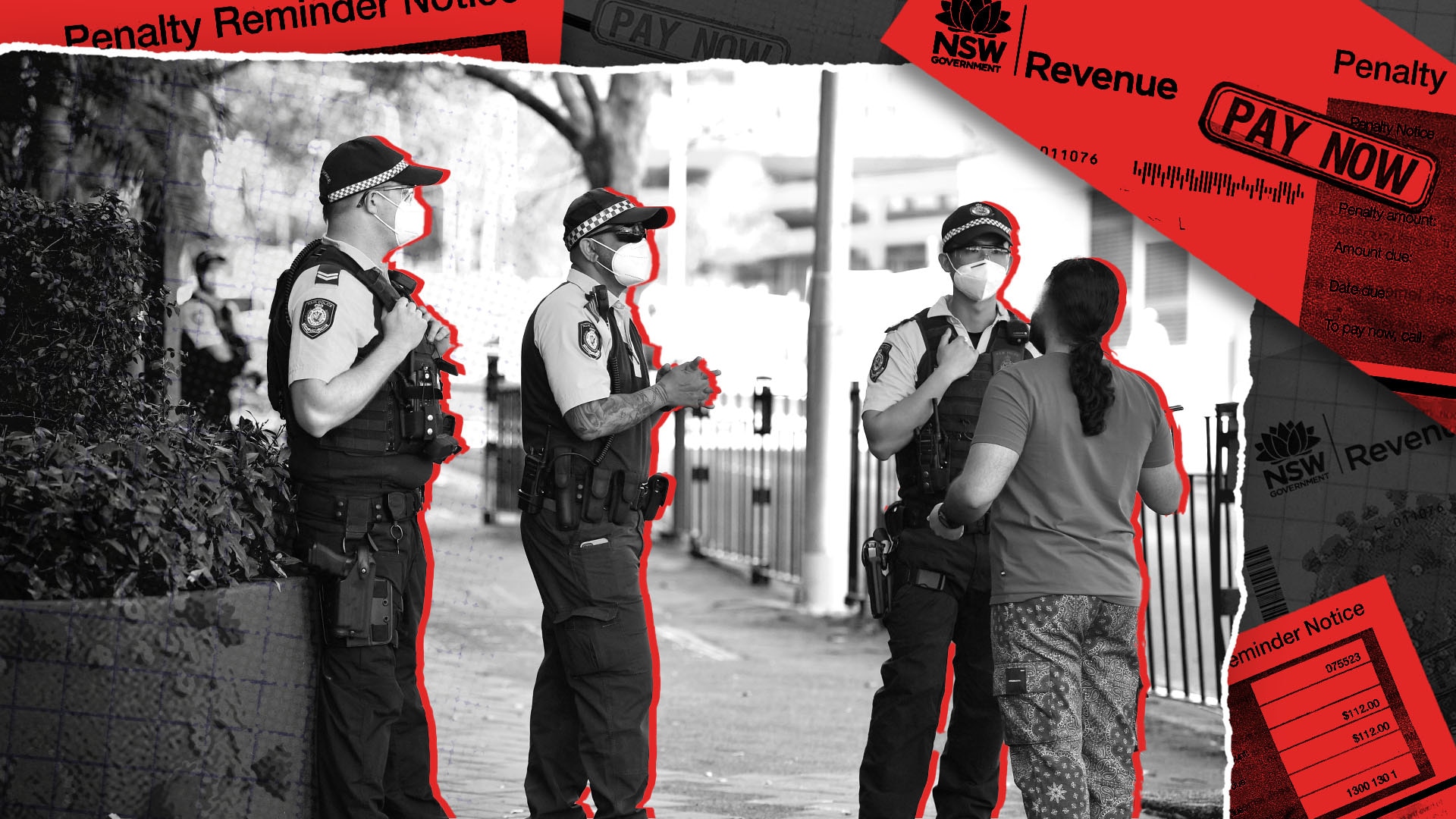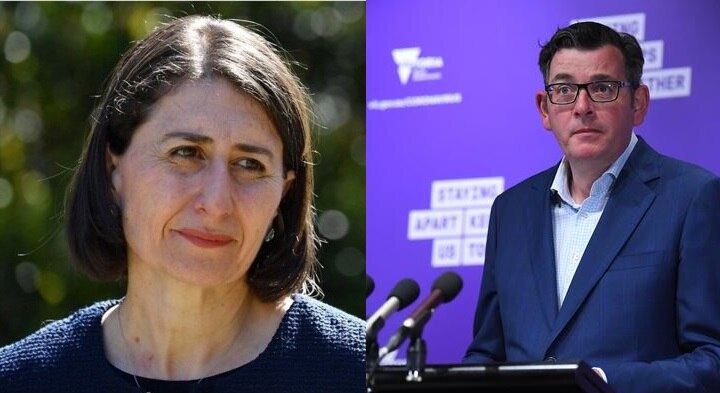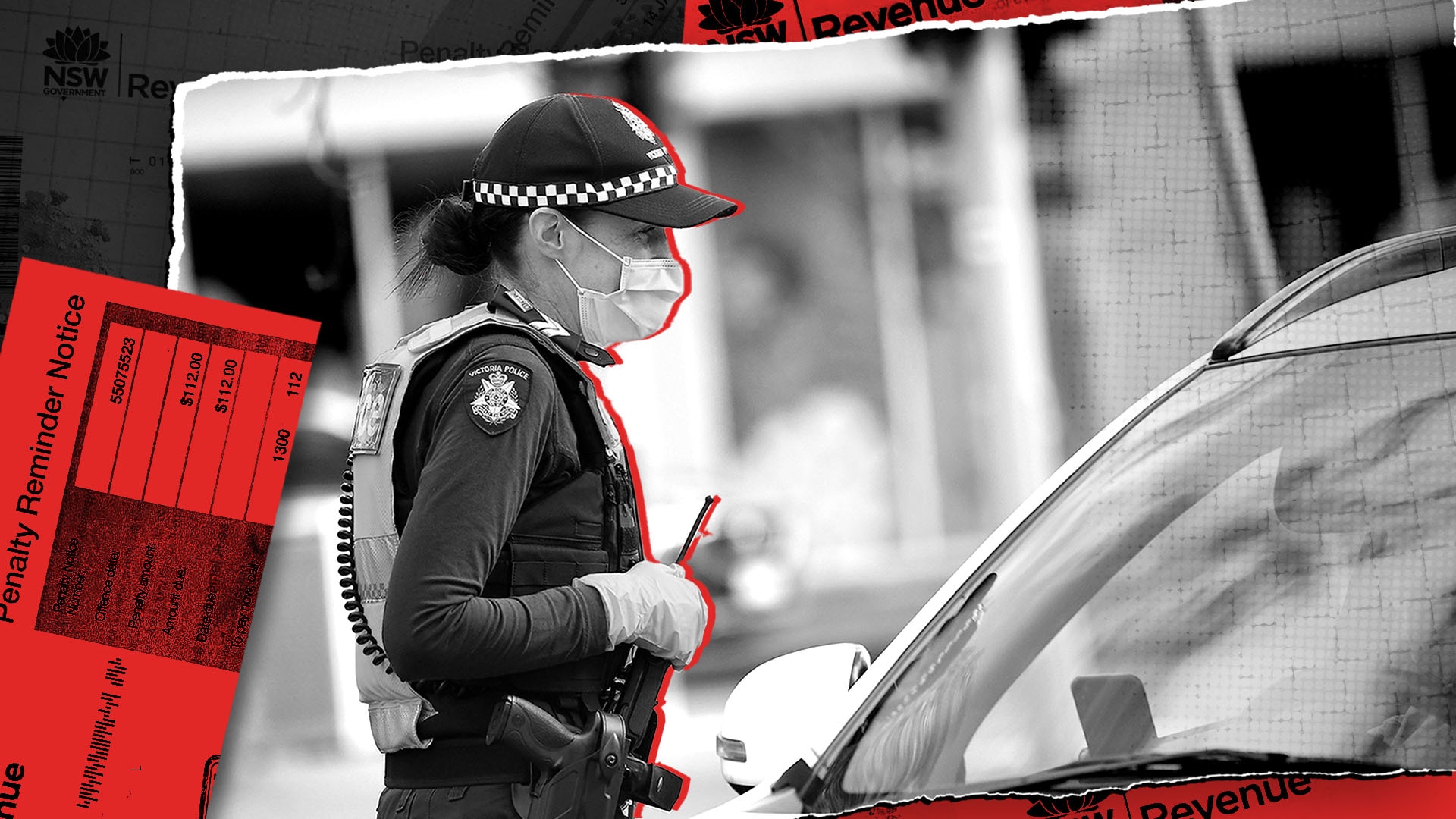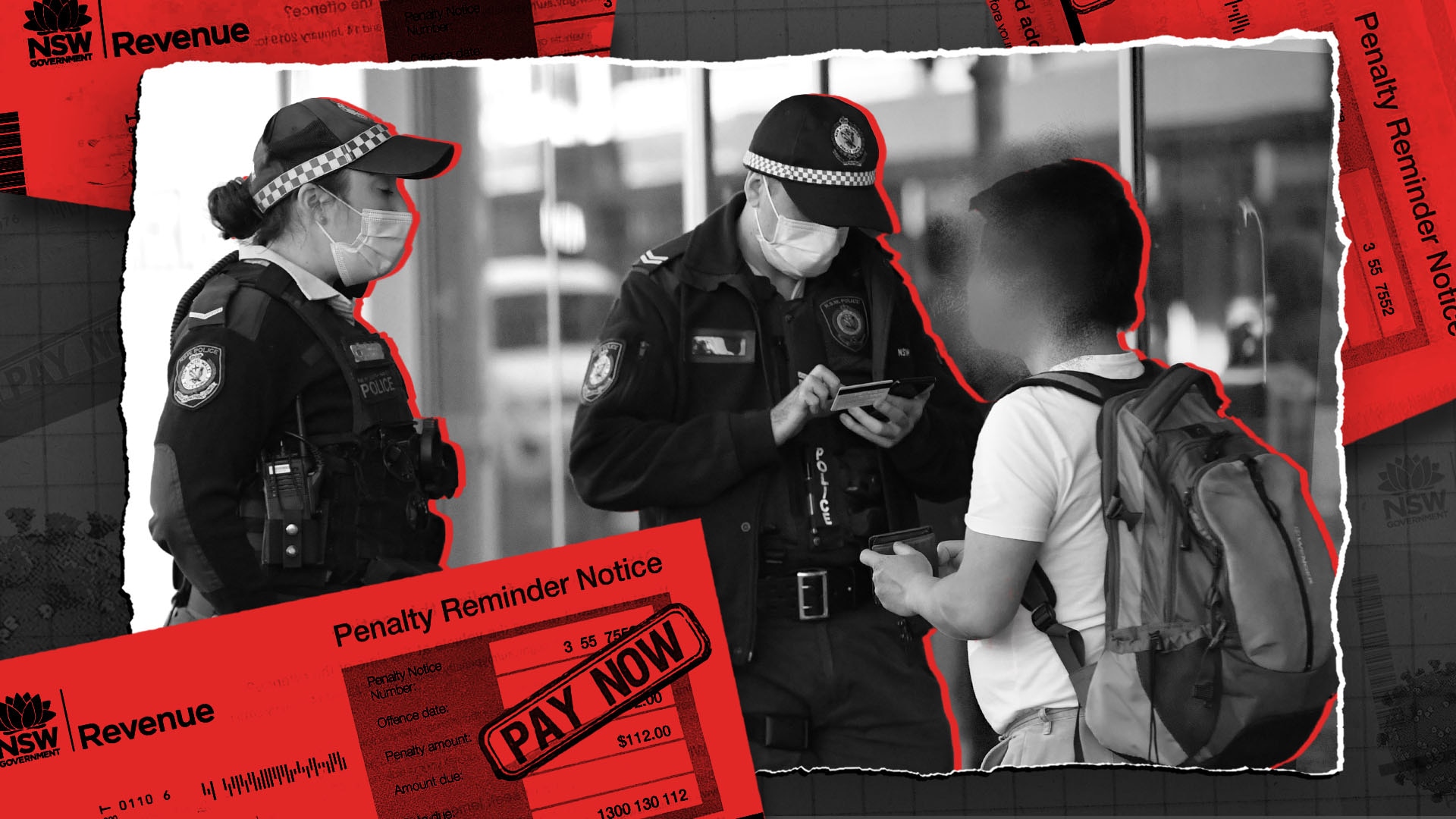IMAGE: Source: AAP/SBS News
Source: SBSnews
By Stephanie Corsetti

Data collated by SBS News shows millions of dollars in fines for breaches of public health orders in New South Wales and Victoria remain unpaid, with legal services saying the system needs to have compassion for those struggling to pay.
Millions of dollars in fines for breaches of public health orders during the COVID-19 pandemic are overdue in both New South Wales and Victoria.
But legal professionals say some Australians are unable to cover the costs and are calling for an improved system.
Publicly available data collated by SBS News shows from late June until now, almost 29,000 fines related to COVID-19 offences and worth $24 million were issued in NSW – but only $1.6 million has been paid.

There were 3,000 fines issued since the start of the pandemic in March 2020 up to June 2021, according to Revenue NSW.
Of the $4 million worth of fines handed out in the state during the first year of the pandemic, almost half of the total amount has been paid.
In Victoria, where nearly 39,000 COVID-19 fines were handed out from the end of March until mid-June this year – worth almost $60 million – only about $5.7 million has been paid.
Fines Victoria said 65 per cent of fines have reached the final demand phase.
What are people being fined for?
In NSW, breaking health rules can incur fines ranging from $40 to more than $10,000. An individual can be given a $500 on the spot fine for failing to carry or wear a face mask.
Data from January to July this year shows $200,000 worth of fines were given to people in the state for not wearing a fitted face covering while in a public transport waiting area.
But there were more than 15 different fines related to facemasks in various settings.
Lawyers supporting those fined for COVID-19 breaches said some recent penalties in NSW include a $1,000 fine for leaving a place of residence without a reasonable excuse.
In August, NSW Premier Gladys Berejiklian said increased fines and a heightened police presence would ensure people who did the wrong thing were caught and punished appropriately.
Individual penalties for on-the-spot breaches of self-isolation rules in the state rose to $5,000 last month. The same fine amount also applies to anyone who lies on a permit or misleads a contact tracer, both of which were already criminal offences.

In Victoria, police can issue on-the-spot fines of up to $1,817 for individuals and up to $10,904 for businesses for refusing or failing to comply with public health orders. A $5,452 fine can be issued to anyone found breaching gatherings directions.
Last month, Victorian Premier Daniel Andrews said many more warnings than fines had been issued in the state, but police needed to enforce fines for serious breaches and where there are risks to the community.
“If you’ve done the wrong thing and you’ve been not warned but fined, then you need to pay the fine,” Mr Andrews said.
“If you don’t want the sheriff knocking on your door, as is fair.”
‘Vulnerable struggling to pay’
Lawyers supporting those fined for COVID-19 breaches say many cannot pay up due to financial hardship, particularly due to the impacts of the pandemic.
There are also concerns that some, including young people, may not come forward to ask for help to contest the fines.
“I think a lot of them are just sitting with them,” said Tiffany Overall from YouthLaw, in regards to the Victorian data.

“We acknowledge only a very small portion of young people or community members are probably reaching out and accessing legal advice and support for these fines matters.”
Ms Overall is among several legal professionals expressing concern about the difficulties of navigating the appeals system. She has asked the oversight panel for Fines Victoria to review the process in the hopes of making it fairer.

“There are enormous financial stressors. A lot of young people or family members have lost employment [and] there is the mental health concerns,” she said.
“We need to have a COVID fines review system that works fairly and efficiently for all. That hasn’t necessarily been our experience.”
The Aboriginal Legal Service has previously questioned the number of fines handed out during last year’s lockdown in some Sydney suburbs including Redfern, Blacktown and Mount Druitt.
We need to have a COVID fines review system that works fairly and efficiently for all. That hasn’t necessarily been our experience.- Tiffany Overall, Youth Law Australia
NSW Police said its current figures indicate that during its ‘Stay at Home’ operation, which launched in mid-August, the areas with the most fines in Greater Sydney were St George, Sydney City, then Mount Druitt.
South Sydney or Redfern had less than half the amount of fines issued when compared to St George, the force said.
Criminal defence lawyer Mariecar Capili said she had people from several locations coming forward for help.
“At the moment, I am seeing a lot of clients making inquiries from the Liverpool and Fairfield local government areas, a few coming in from Paramatta as well, and a couple from Hornsby.”

The Aboriginal Legal Service in Victoria has also raised concerns about Indigenous people being disproportionately affected by COVID-19 fines.
“We certainly have many instances of disadvantaged people who are already struggling to make ends meet,” said its acting chief executive George Selvanera.
Mr Selvanera said for many young Aboriginal people – either living at home or in residential care – individual fines of $1,700 can be unaffordable and can add up to more than a week’s wage.
“The idea that they are in a position to pay a fine is kind of nonsensical really,” he said.
Data shows five per cent of alleged COVID-19 offenders in Victoria from April 2020 to March 2021 were Indigenous. Just under one per cent of people in the state identify as Indigenous.
The Crime Statistics agency noted that Aboriginality was not always recorded.
Mr Selvanera said he wants answers about how decisions on fines are made and a better understanding of how exceptions are applied.
“One of the real challenges has been a lack of openness and a lack of transparency as to who is being fined,” he said.
Where to get support if you’ve been fined
Victoria Police referred a request for comment to Fines Victoria.
The state’s Department of Justice and Community Safety also said people experiencing hardship due to COVID-19 who haven’t yet paid costs can contact Fines Victoria for flexible options.
Extra time to pay a fine or a payment plan may be granted.

“We know our social justice programs are working. In the last financial year … more than $5.6 million in fines [were] withdrawn,” a spokesperson for the department said.
“Fines Victoria also finalised 1,170 Work and Development Permits, with more than $3.03 million in fines worked off.”
People will be able to request a review of a Victorian COVID-19 fine on several grounds including special or exceptional circumstances. But the department warned that fines do not expire and stressed that all debt will be collected.
NSW Police told SBS News: “while police issue infringements, they are not involved in payments”.
People in the state have three weeks to pay a fine, it said, and when seeking an appeal, recipients will be able to ask Revenue NSW for leniency or have it contested in court.
The maximum penalty for public health order breaches in the state is $11,000 and/or six months in prison. A further penalty of $5,500 can also be applied for each day the offence continues.
Lawyer Ms Capili said the appeal process begins with an internal review but the client could elect to go to court.
“At that point, the fine is no longer just a fine, then you’d receive a court attendance notice with the date you have to go to court and then it’s up to the magistrate to decide what the penalty is.”
Once a person weighed up their options, it could be more suitable to pay up the fine, she said.
“Depending on which fine it is, there is a possibility that if the fine remains a fine in court, or they are fined in court, they could be leaving with a criminal conviction.”
Revenue NSW said those who have failed to pay a fine could also “face extra fees and further action including the suspension of their driver’s license”.
It has been waiting on payments worth more than $12,000 for the year from March 2020 for existing fines, it said.












